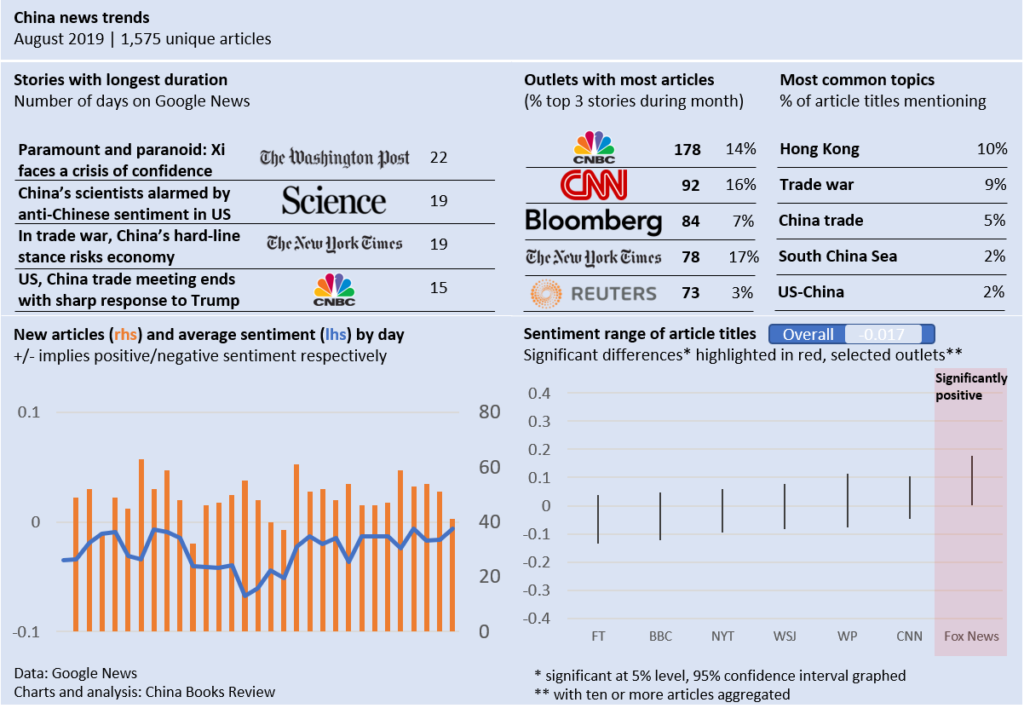
Hong Kong was the most frequent topic of articles aggregated by Google News related to China in August, according to a quantitative news analysis by China Books Review. The analysis, which will be published monthly, uses daily Google News results for stories related to China to identify key trends.
Google News is an important aggregator and, for many publishers, it and the Google search engine account for the plurality of their web traffic. Thus, the stories that Google News elevates plays an important role in shaping popular understanding of China. In August, the data set included 1,575 unique articles from some 200 publications. Article titles mentioning Hong Kong constituted 10% of those aggregated, closely followed by the trade war.
On a typical day, Google News features approximately 100 articles when searching for the term “China,” most of which are no longer featured by the next day. The handful of stories that persist beyond a single day are suggestive of having outsize impact, likely as determined by traffic. In August, a Washington Post analysis of Xi Jinping’s hold on power appeared for 22 days, followed by a report from Science on the alarm among Chinese scientists triggered by increasing US government scrutiny of research relationships with China.
CNBC was the most prolific publisher aggregated by Google News with 178 articles; the top five most prolific publishers accounted for more than 30% of the total articles aggregated. Stories from the New York Times appeared in the top three results 17% of the time, followed by CNN at 16%.
Sentiment analysis can identify whether coverage errs towards the more positive or negative. The title of each article was scored against a dictionary of words which have a positive or negative value depending on their connotation. (For example, “good” would be +1 and “bad” -1.) Overall, sentiment was effectively neutral, with the most negative sentiment occurring in mid-August as the trade war and Hong Kong protests both worsened.
The analysis can also show whether some publications’ titles are more negative or positive than others. There were no publishers with more than 10 articles aggregated by Google News in August with statistically significant negative sentiment. The sentiment of most mainstream outlets’ titles was not significant in either direction. Fox News was a notable exception for the positive sentiment of their article titles, more likely attributable to the algorithm picking up support for Trump’s approach to the country.
On its own, sentiment analysis should not be misinterpreted as an indication of bias. The saying in journalism that “if it bleeds, it leads,” speaks to the observation that coverage of most topics are more likely to be negative. Differences between publications can also be a consequence of scope and house style. A publication that focuses narrowly on business and financial news would likely have a higher concentration of stories with positive growth-oriented connotations than a publication which considers human rights violations within its remit. The dictionary of positive and negative words used for this analysis was the QDAP dictionary.
In the months to come, China Books Review will provide both a monthly and rolling tracker.